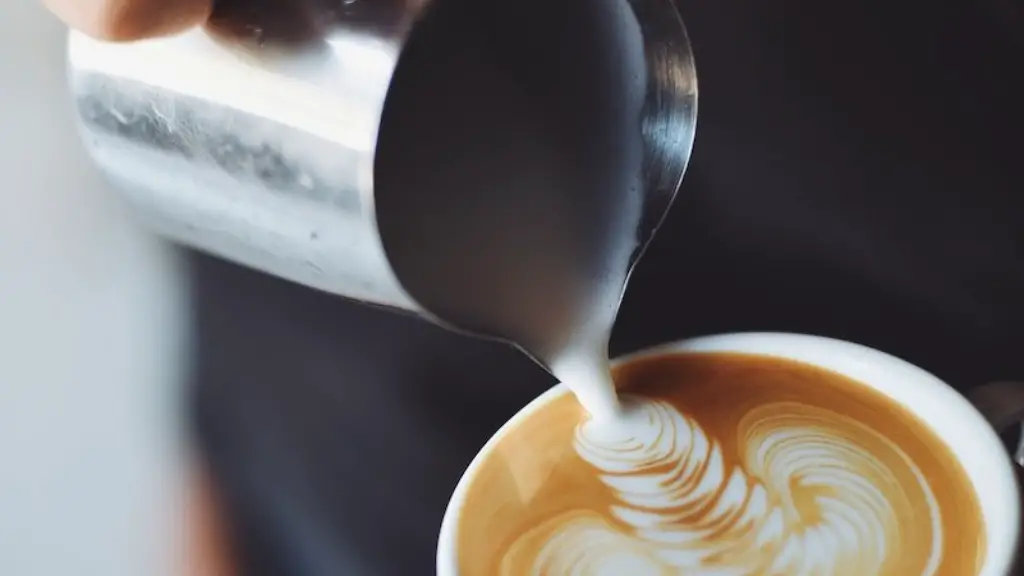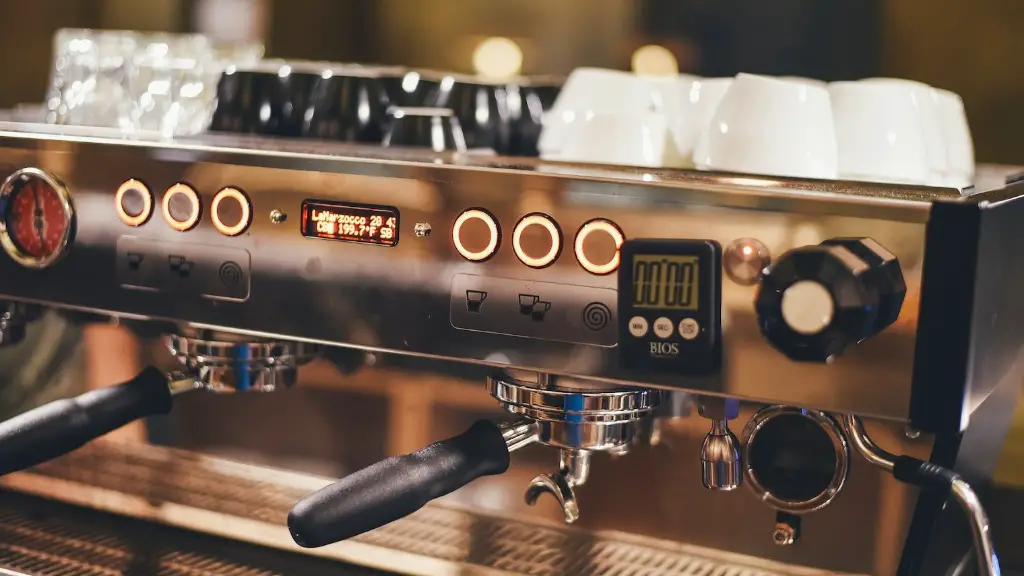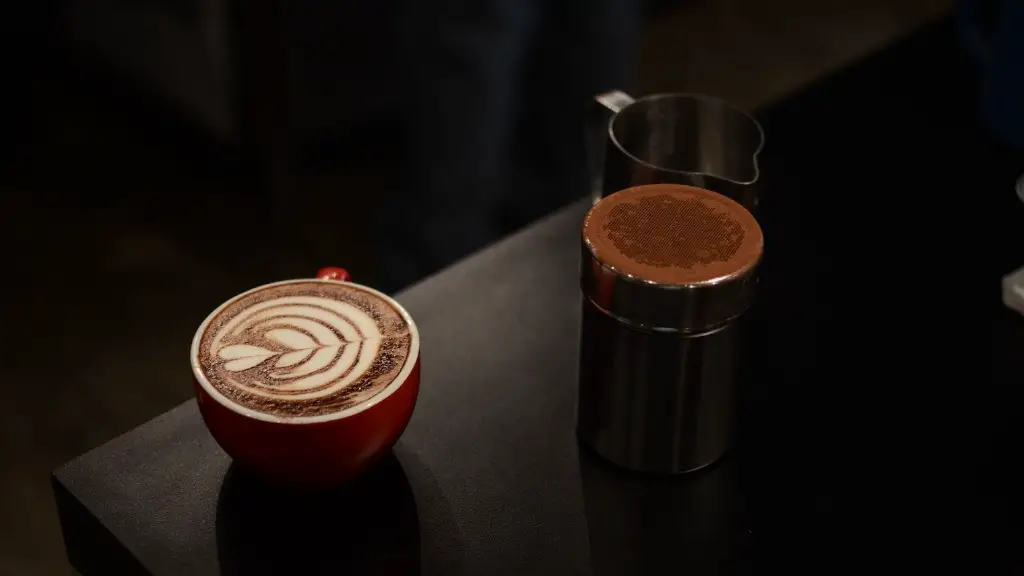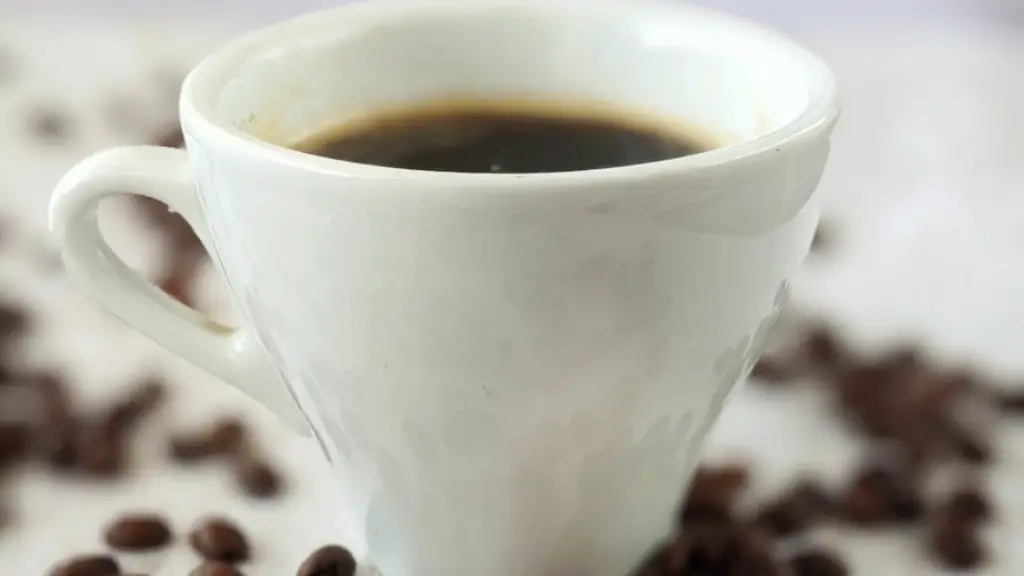Coffee is one of the most popular beverages and is consumed by people of all ages. While coffee can provide health benefits, it can also trigger unpleasant and sometimes frightening palpitations.
Palpitations are feelings in the chest that can range from an awareness of a heart beating to the sensation of a heart skipping a beat. Palpitations that occur after drinking coffee are generally harmless and could be caused by a variety of factors. However, some people may experience more severe symptoms, like chest pain and difficulty breathing, which could indicate a serious medical condition.
In most cases, palpitations that occur after drinking coffee are due to the stimulant effects of caffeine. Caffeine is a natural stimulant that can increase your heart rate, leading to a feeling of palpitations. It can also cause your blood vessels to constrict, leading to a range of other symptoms such as jitteriness or feelings of anxiety or stress. Additionally, caffeine may also affect your blood sugar levels, leading to palpitations.
However, some people may be more sensitive to the effects of caffeine and may experience palpitations more intensely. People who suffer from anxiety or panic disorders may be more likely to experience palpitations after drinking coffee.
If you experience palpitations after drinking coffee, it is important to talk to your doctor. Your doctor can help determine whether your symptoms are due to caffeine sensitivity or a more serious medical issue. They can also help you manage your symptoms and ensure that you stay healthy and safe.
It is also important to pay attention to how much coffee you drink, as excessive consumption of caffeine can lead to persistently elevated heart rates and palpitations. If you find that you are experiencing frequent palpitations after drinking coffee, it may be time to consider reducing the amount of caffeine and coffee that you consume.
Supplements
If you are looking for ways to reduce or avoid palpitations after drinking coffee, there are some natural supplements and remedies that may be beneficial. Ginseng is a popular herbal supplement that can help regulate your heart rate and reduce palpitations. Magnesium is another supplement that can help regulate your heart rate and promote overall heart health. Some studies also suggest that omega-3 fatty acids may help reduce palpitations after drinking coffee.
It is important to note that supplements should not be used to replace medications prescribed by your doctor. Be sure to speak with your doctor before adding any new supplements to your diet.
Additionally, it is important to pay attention to other lifestyle factors that may be contributing to your palpitations. Eating a balanced diet, exercising regularly, and getting enough sleep are all important for maintaining overall heart health and reducing the symptoms of palpitations. Reducing stress and limiting your alcohol consumption can also be beneficial.
Acupressure
Acupressure is a popular alternative therapy that is used to treat a variety of conditions, including palpitations. Acupressure involves the use of gentle pressure on specific points on the body. The theory behind acupressure is that these points are connected to channels of energy that can be activated to help reduce symptoms of various conditions.
According to traditional Chinese medicine, palpitations can be caused by an imbalance of energy in the body. Acupressure can help restore balance by stimulating specific points on the body that are associated with the heart. This can help improve circulation and reduce palpitations.
Acupressure can be done by a certified practitioner or at home with the help of a friend or family member. It is important to remember that acupressure is not a substitute for medical treatment and that it is important to speak to your doctor before starting any new treatment plan.
Yoga
Yoga is a popular form of exercise that can help reduce stress and improve overall heart health. Numerous studies have found that yoga can be beneficial for people who experience palpitations after drinking coffee. Yoga helps to improve blood flow and reduce blood pressure, which can help reduce the symptoms of palpitations. It can also help you relax and de-stress, which can be beneficial for those who experience palpitations due to stress and anxiety.
When practicing yoga, it is important to focus on slow and controlled movements, deep breathing, and mindful meditation. Yoga classes are widely available, so you can find one that is suitable for your needs and skill level. If you prefer, you can also practice yoga at home using online resources.
Lifestyle Changes
Making some simple lifestyle changes can also help reduce the occurrence of palpitations after drinking coffee. Avoiding alcohol and cutting down on processed and sugary foods can help improve your overall heart health, which in turn can reduce palpitations. Additionally, engaging in regular exercise can help improve circulation and reduce stress, both of which can help reduce palpitations.
Stress management is also important for reducing palpitations. One of the best ways to reduce stress is to incorporate meditation into your daily routine. Mindful meditation can help you relax and focus on the present moment, which can help reduce stress and palpitations.
Finally, it is important to be aware of any underlying medical conditions that can cause palpitations. Conditions such as diabetes, high blood pressure, and thyroid disorders can all contribute to palpitations after drinking coffee. If you are experiencing frequent palpitations, it may be worth speaking to your doctor to ensure that you are managing your medical conditions properly and to rule out any other underlying medical issues.
Herbal Teas
Herbal teas can be a great alternative to coffee for those who suffer from palpitations. Herbal teas are naturally caffeine-free and can still provide the same satisfying taste and energy boost as coffee. Popular herbal teas include hibiscus, chamomile, peppermint, and ginger.
If you do choose to drink coffee, it is important to pay attention to the amount of caffeine you are consuming. Cutting back on your caffeine intake can help reduce the occurrence of palpitations, as can gradually replacing your coffee with herbal tea.
Conclusion
Experiencing palpitations after drinking coffee is normal and is usually caused by caffeine sensitivity. Fortunately, there are a number of natural remedies, supplements, and lifestyle changes that can help reduce the occurrence of palpitations. If you experience palpitations frequently after drinking coffee, it is important to speak to your doctor to make sure that no medical conditions are the cause. Lastly, replacing coffee with herbal teas can be a great way to reduce caffeine intake and improve overall heart health.





